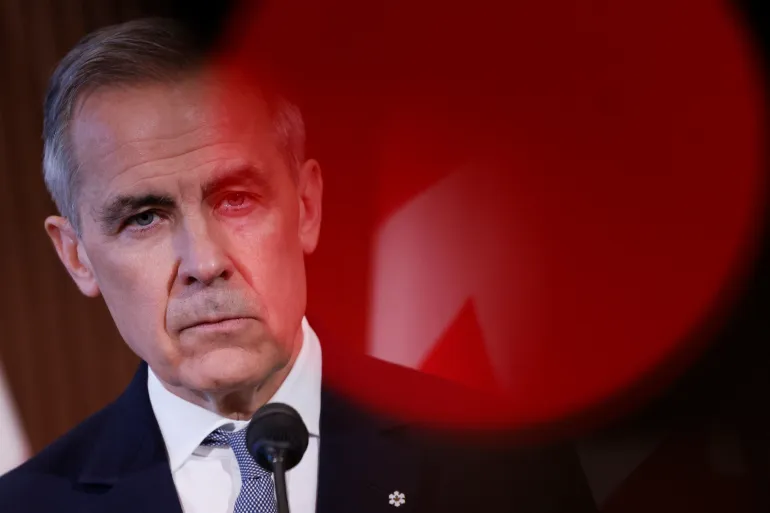Canadian Prime Minister, Mark Carney has offered his assessments of Trump’s latest tariffs, saying that it signaled an end to the tight bonds his country and the US once enjoyed.
Carney said, “The old relationship we had with the United States – based on deepening integration of our economies and tight security and military cooperation – is over.”
“We will need to dramatically reduce our reliance on the United States. We will need to pivot our trade relationships elsewhere. And we will need to do things previously thought impossible, at speeds we haven’t seen in generations.”
Mark Carney
Carney’s remarks arrived on the heels of a new executive proclamation from the Trump administration, placing a 25-percent tariff on all foreign-made automobiles imported into the US, starting on April 2, 2025.

Officials in both Canada and Mexico have decried Trump’s tariff campaign as a violation of the free-trade agreement the three countries signed in 2019, during the US President’s first term.
However, the United Auto Workers (UAW) – one of the most influential labour unions in the US – praised Trump’s decision as a win for domestic workers.
UAW President, Shawn Fain wrote in a statement, “We applaud the Trump administration for stepping up to end the free trade disaster that has devastated working-class communities for decades.”
He blamed free-trade accords for sending US manufacturing jobs to cheaper markets abroad.
“These tariffs are a major step in the right direction for autoworkers and blue-collar communities across the country, and it is now on the automakers, from the Big Three to Volkswagen and beyond, to bring back good union jobs to the US.”
Shawn Fain
Meanwhile critics warn that the tariffs will not have an immediate effect on job creation for Americans, as it will take time to build new production lines in the US.
Flavio Volpe, the President of Canada’s Automotive Parts Manufacturing Association, explained that nearly two million automobiles constructed in Canada are made for US car companies.
Those Canadian factories, meanwhile, source half of their car parts and raw materials from the US.
Volpe said that serves as an illustration of how deeply intertwined the international car industry is.
“Anything that the White House is trying to do to Canadians is going to [be done] directly to the three biggest automotive enterprises that are based in the US.
“The industry is likely to shut down on both sides of the border within a week.
Flavio Volpe
Since the 25-percent tariffs were announced, US automaker General Motors has seen a sharp drop in its shares.
It is considered one of the “Big Three” car manufacturers in the US, alongside Ford and Stellantis.
Carney Vows Firm Response
World leaders have denounced United States President Donald Trump for unveiling a new tariff measure, this time aimed at the automobile industry.
Carney likewise hinted at negative outcomes for the global economy – and a firm response from Canada.
“We will fight the US tariffs with retaliatory trade actions of our own that will have maximum impact in the United States and minimum impacts here in Canada.
“Let’s be clear. We’re all on the same page. We won’t back down. We will respond forcefully. Nothing is off the table to defend our workers and our country.”
Mark Carney
Carney’s words make it clear that Canada will defend its interests fiercely and will not simply acquiesce to U.S. pressure.
As nations brace for the ripple effects of this latest trade conflict, the real test now lies in whether this growing tide of economic protectionism can be prevailed over, or if this will mark the beginning of a more fractured, and increasingly contentious, trade landscape.
READ ALSO: MTN Ghana Declares GHS0.24 As Final Dividend Per Share At 7th AGM























